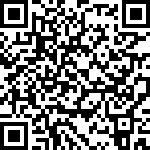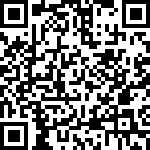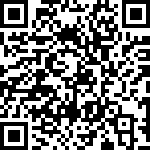As a Free & Open-source fan/advocate I am not much interested in proprietary products from Apple and Microsoft, though, this does not implicate that I hate their founders (e.g. Steve Jobs, Steve Wozniak, Bill Gates, etc.) even if I have conflict of interests with them. No doubt all the mentioned named revolutionized tech industry and did great jobs and some also have done awful things such as popularizing intellectual properties, copyright and privacy infringement. But my point is we (as people) can learn many things from them, even from Hitler. We can learn their good characteristics or avoid their mistakes.
More than a year ago (to be exact 14th April 2015), I’d started to read Steve Jobs (biography) book by Walter Isaacson because I’d thought Jobs’ life was quite interesting and I could learn many things from it. I read the book while I was out, in train/bus or waiting for something.
I finish the book by Jan 8 2016 which was more than 8 months ago. During reading I highlighted interesting points (lessons) and finally after few months passed managed to extract them and share here. Keep note that many points do not make sense especially for those who didn’t read the book.
I highly recommend everyone to read this book, it’s quite interesting, I guarantee you won’t get tired or bored of it.
Disclaimer: The following section of the post is part of Steve Jobs book by Walter Isaacson hence it is copyrighted and it is excluded from Creative Commons Attribution-ShareAlike 4.0 International License (which is used for this blog, refer to here) and all rights reserved and belong to Walter Isaacson, the author of the book. You can purchase the full book (paper, electronic, audio) from Amazon or other sellers.
-
After work each day, Wozniak would go home for a TV dinner and then return to HP to moonlight on his computer.
-
Wozniak’s creations, be it a Blue Box or a computer, wanted to be free. So he convinced Wozniak to stop giving away copies of his schematics. Most people didn’t have time to build it themselves anyway.
-
If we can rap about their needs feelings and motivations, we can respond appropriately by giving them what they want.
-
Markkula wrote his principles in a one-page paper titled “The Apple Marketing Philosophy” that stressed three points. The rest was empathy, an intimate connection with the feelings of the customer: “We will truly understand their needs better than any other company.” The second was focus: “In order to do a good job of those things that we decide to do, we must eliminate all of the unimportant opportunities.” The third and equally important principle, awkwardly named, was impute. It emphasized that people form an opinion about a company or product based on the signals that it conveys. “People DO judge a book by its cover,” he wrote. “We may have the best product, the highest quality, the most useful software etc.; if we present them in a slipshod manner, they will be perceived as slipshod; if we present them in a creative, professional manner, we will impute the desired qualities.”
-
“Simplicity is the ultimate sophistication.”
-
Theirs was a serious trip, beginning in March 1976 and lasting almost a year. At one point they ran out of money, so Calhoun hitchhiked to Iran to teach English in Tehran. Brennan stayed in India, and when Calhoun’s teaching stint was over they hitchhiked to meet each other in the middle, in Afghanistan. The world was a very different place back then.
-
Kay pushed the vision of a small personal computer, dubbed the “Dynabook,” that would be easy enough for children to use. So Xerox PARC’s engineers began to develop user-friendly graphics that could replace all of the command lines and DOS prompts that made computer screens intimidating.
-
Picasso had a saying—‘good artists copy, great artists steal’—and we have always been shameless about stealing great ideas
-
New ideas are only part of the equation. Execution is just as important
-
“I’ve learned over the years that when you have really good people you don’t have to baby them,” Jobs later explained. “By expecting them to do great things, you can get them to do great things”
-
“Steve, either make something you can sell or go get a job.” Sixty days later, in a wooden box that his dad made for him, the first Apple computer was created. And this high school graduate literally changed the world.
-
“Deciding what not to do is as important as deciding what to do,” he said. “That’s true for companies, and it’s true for products.”
-
After he was forced out, the process at Apple reverted to being engineer-driven. “Before Steve came back, engineers would say ‘Here are the guts’— processor, hard drive—and then it would go to the designers to put it in a box,” said Apple’s marketing chief Phil Schiller. “When you do it that way, you come up with awful products.” But when Jobs returned and forged his bond with Ive, the balance was again tilted toward the designers. “Steve kept impressing on us that the design was integral to what would make us great,” said Schiller. “Design once again dictated the engineering, not just vice versa.”
-
Early on, Mike Markkula had taught Jobs to “impute”—to understand that people do judge a book by its cover—and therefore to make sure all the trappings and packaging of Apple signaled that there was a beautiful gem inside. Whether it’s an iPod Mini or a MacBook Pro, Apple customers know the feeling of opening up the well-crafted box and fnding the product nestled in an inviting fashion. “Steve and I spend a lot of time on the packaging,” said Ive. “I love the process of unpacking something. You design a ritual of unpacking to make the product feel special. Packaging can be theater, it can create a story.”
-
For most things in life, the range between best and average is 30% or so. The best airplane fight, the best meal, they may be 30% better than your average one. What I saw with Woz was somebody who was ffty times better than the average engineer. He could have meetings in his head. The Mac team was an attempt to build a whole team like that, A players. People said they wouldn’t get along, they’d hate working with each other. But I realized that A players like to work with A players, they just didn’t like working with C players. At Pixar, it was a whole company of A players. When I got back to Apple, that’s what I decided to try to do. You need to have a collaborative hiring process. When we hire someone, even if they’re going to be in marketing, I will have them talk to the design folks and the engineers. My role model was J. Robert Oppenheimer. I read about the type of people he sought for the atom bomb project. I wasn’t nearly as good as he was, but that’s what I aspired to do.
-
Johnson said that the size of a store signaled the importance of the brand. “Is Apple as big of a brand as the Gap?” he asked. Jobs said it was much bigger. Johnson replied that its stores should therefore be bigger. “Otherwise you won’t be relevant.” Jobs described Mike Markkula’s maxim that a good company must “impute”—it must convey its values and importance in everything it does, from packaging to marketing. Johnson loved it. It defnitely applied to a company’s stores. “The store will become the most powerful physical expression of the brand,” he predicted.
-
“If something isn’t right, you can’t just ignore it and say you’ll fx it later,” he said. “That’s what other companies do”.
-
Remembering that I’ll be dead soon is the most important tool I’ve ever encountered to help me make the big choices in life. Because almost everything—all external expectations, all pride, all fear of embarrassment or failure—these things just fall away in the face of death, leaving only what is truly important.
-
Remembering that you are going to die is the best way I know to avoid the trap of thinking you have something to lose. You are already naked. There is no reason not to follow your heart.
-
So if you don’t feel comfortable disagreeing, then you’ll never survive.
-
“Instead of encouraging each group to let product lines proliferate based on marketing considerations, or permitting a thousand ideas to bloom, Jobs insisted that Apple focus on just two or three priorities at a time. “There is no one better at turning off the noise that is going on around him,” Cook said. “That allows him to focus on a few things and say no to many things. Few people are really good at that.”
-
He’s a very, very sensitive guy. That’s one of the things that makes his antisocial behavior, his rudeness, so unconscionable. I can understand why people who are thick-skinned and unfeeling can be rude, but not sensitive people. I once asked him why he gets so mad
-
about stuff. He said, “But I don’t stay mad.” He has this very childish ability to get really worked up about something, and it doesn’t stay with him at all. But there are other times, I think honestly, when he’s very frustrated, and his way to achieve catharsis is to hurt somebody. And I think he feels he has a liberty and a license to do that. The normal rules of social engagement, he feels, don’t apply to him. Because of how very sensitive he is, he knows exactly how to efficiently and effectively hurt someone. And he does do that.
-
“Don’t go into the press conference with your tail between your legs”
-
“What you see is what you get.”
-
The depression became part of the vicious cycle by making him even less likely to eat.
-
What are the five products you want to focus on? Get rid of the rest, because they’re dragging you down. They’re turning you into Microsoft. They’re causing you to turn out products that are adequate but not great. I tried to be as helpful as I could. I will continue to do that with people like Mark Zuckerberg too. That’s how I’m going to spend part of the time I have left. I can help the next generation remember the lineage of great companies here and how to continue the tradition. The Valley has been very supportive of me. I should do my best to repay.
-
For that to change, Gates said, computers and mobile devices would have to focus on delivering more personalized lessons and providing motivational feedback.
-
This intensity encouraged a binary view of the world. Colleagues referred to the hero/shithead dichotomy. You were either one or the other, sometimes on the same day. The same was true of products, ideas, even food: Something was either “the best thing ever,” or it was shitty, brain-dead, inedible. As a result, any perceived few could set off a rant. The fnish on a piece of metal, the curve of the head of a screw, the shade of blue on a box, the intuitiveness of a navigation screen —he would declare them to “completely suck” until that moment when he suddenly pronounced them “absolutely perfect.” He thought of himself as an artist, which he was, and he indulged in the temperament of one.
-
Astronomer Johannes Kepler declared that “nature loves simplicity and unity.” So did Steve Jobs.
-
Jobs’s intensity was also evident in his ability to focus. He would set priorities, aim his laser attention on them, and flter out distractions. If something engaged him—the user interface for the original Macintosh, the design of the iPod and iPhone, getting music companies into the iTunes Store—he was relentless. But if he did not want to deal with something—a legal annoyance, a business issue, his cancer diagnosis, a family tug—he would resolutely ignore it. That focus allowed him to say no. He got Apple back on track by cutting all except a few core products. He made devices simpler by eliminating buttons, software simpler by eliminating features, and interfaces simpler by eliminating options.
-
“My job is to say when something sucks rather than sugarcoat it.”






